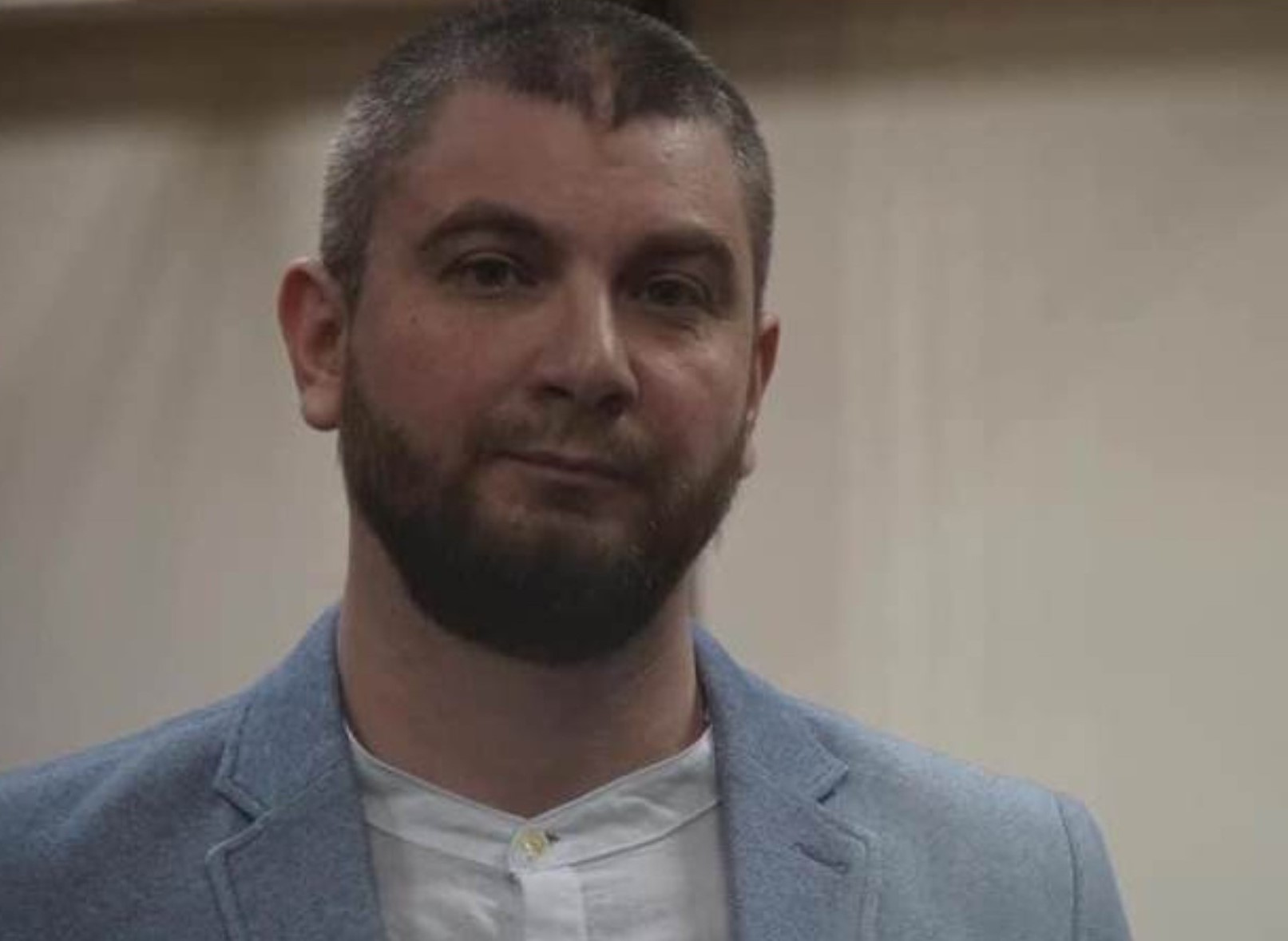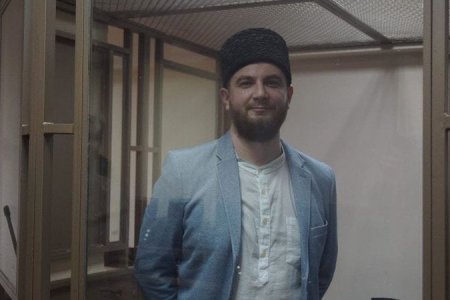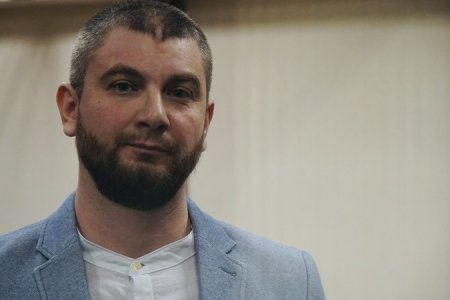
Russia’s justice system has become as unpredictable as its ‘history’ under the current regime, especially where the victims are Crimean Tatar or other Ukrainian political prisoners. Even a full acquittal is no guarantee that a person will not then receive a huge sentence with no chance of early release. All of this while convicted Russian killers, even those imprisoned for particular savagery or cannibalism, are pardoned and released for agreeing to kill Ukrainians.
In fact, Russian courts have only ever acquitted one Crimean Tatar political prisoner, Crimean Solidarity civic journalist and photographer Ernes Ametov. It is possible that this was always intended as a temporary thing, aimed at imitating a real ‘trial’ in the face of international condemnation for Russia’s first open attack on Crimean Tatar civic journalists and activists. There are, however, also grounds for thinking that Ametov has been savagely punished for his integrity.
The later 11-year sentence was, on 30 November 2023, upheld by Russia’s military court of appeal in Vlasikha (Moscow region) and has, therefore, now come into force. It is not clear how many years of this sentence Ametov has already officially served, since he had been imprisoned for almost two years before the acquittal, and he has been in custody again since
Eleonora Ametova is in no doubt that the sentence against her husband was in retaliation for his refusal to lie about other Muslims in occupied Crimea, something he could not agree to do. Nor, as she explained to Crimean Solidarity, did the FSB conceal this. “Ernes is a believer, who is true to God and to his life principles. When he refused, he was told, “so you’ll be imprisoned with them all”,
She added that the real motivation behind the FSB’s supposed fight against ‘terrorism’ is their wish to get high-ranking posts. “It doesn’t matter to them whether they imprison real terrorists or ordinary people.”
Ernes himself commented that the appeal hearing “was more reminiscent of a conveyor belt for producing can lids,” a frighteningly well-oiled and quick machine.
Russia’s prosecutions of Crimean Muslims on deeply flawed ‘terrorism’ charges bore all the hallmarks of a conveyor belt of repression from the outset. It was, however, with the arrest of Ernes Ametov and five other Crimean Tatar civic journalists and activists in October 2017 and May 2018, that Russia dropped any pretence. These were clearly, and perhaps demonstratively, an attack on the Crimean Tatar human rights movement. Since that time, Russia’s FSB have, more or more openly, targeted activists or journalists from Crimean Solidarity, a movement that began in 2016 in response to the mounting repression in occupied Crimea.
Armed attack on Crimean Solidarity
Six Crimean Tatar families were subjected to armed ‘searches’ in the early morning of 11 October 2017, with six men, all of whom had been active in supporting political prisoners and their families. Four of the men arrested that day are civic journalists: Ernes Ametov (b. 1985); Marlen (Suleiman) Asanov (b. 1977); Timur Ibragimov (b. 1985) and Seiran Saliyev (b. 1985), while Memet Belyalov (b. 1989) and Server Zekiryaev (b. 1973) were both civic activists. It was, however, the arrest on 21 May 2018 of Crimean Solidarity Coordinator Server Mustafayev (b. 1986) (together with Edem Smailov (b. 1968)) that provoked the most international condemnation.
The charges
Not one of the men was accused of any recognizable crime, only of unproven ‘involvement’ in Hizb ut-Tahrir, a peaceful transnational Muslim organization which is legal in Ukraine and which is not known to have committed acts of terrorism anywhere in the world. There were no grounds for the 2003 Russian Supreme Court ruling which declared Hizb ut-Tahrir ‘terrorist’, and it is likely that the move was aimed at enabling Russia to extradite victims of religious persecution back to Uzbekistan.
Marlen Asanov; Memet Belyalov and Timur Ibragimov were charged with ‘organizing’ a Hizb ut-Tahrir group Article 205.5 § 1 of Russia’s criminal code, while Ernes Ametov and the other men were accused only of ‘involvement’ in such an alleged group (Article 205.5 § 2), The distinction is largely arbitrary, however it makes a difference to the length of the sentence, and there have been occasions where the charge was changed to the more serious of the two in reprisal, for example, for refusing to remain silent about torture.
All eight men were also charged (under Article 278) with ‘planning to violently seize power’. This new charge also appeared only in February 2019, with no attempt ever made to explain how the men were planning such a ‘violent seizure’.
The ’evidence’
There were three illicitly taped and entirely innocuous conversations in a Crimean Mosque which the FSB sent to three supposed ‘experts’. Yulia Fomina; Yelena Khazimulina, and Timur Zakhirovich Urazumetov are all notorious for lacking any professional competence to back assessments which invariably back whatever claims the prosecution makes. During the original trial, the defence called in Dr Yelena Novozhilova, an independent and experienced forensic linguist, who gave an absolutely damning assessment of the linguistic analysis produced by Fomina and Khazimulina.
Russia’s use of anonymous and totally secret ‘witnesses’ has been found in violation of the right to a fair trial by the European Court of Human Rights and has been condemned by the UN Secretary General. The prosecution and judges are complicit in this travesty, with the judges regularly blocking questions which show that the alleged ‘witness’ can only recite claims from the indictment and may not even know the defendants.
In this case, both ‘secret witnesses’ were, in fact, recognized, and their reasons for collaborating with the FSB entirely clear to the court. Konstantin Tumarevich is a Latvian citizen and fugitive from justice who could not risk being sent back to Latvia after his passport expired. He is believed to have been used by the FSB in several prosecutions. Narzulayev Salakhutdin was also living in occupied Crimea without the proper documents and did not want to be forcibly returned to his native Uzbekistan.
Convictions and acquittal
On 18 September 2020, Rizvan Zubairov, together with Roman Saprunov; and Maxim Nikitin from the Southern District Military Court in Rostov (Russia) convicted seven of the men, and acquitted Ametov. The sentences, all in the harshest of Russian penitentiary institutions, were horrific: Crimean Solidarity civic journalist Marlen Asanov was sentenced to 19 years; Crimean Solidarity activist Memet Belyalov - 18 years; Crimean Solidarity civic journalist Timur Ibragimov – 17 years; Crimean Solidarity Coordinator and journalist Server Mustafayev - 14 years; Crimean Solidarity civic journalist Seiran Saliyev - 15 years (reduced at appeal to 14 years); Edem Smailov, the leader of a religious community - 13 years and Crimean Solidarity volunteer Server Zekiryaev – 13 years.
On 8 July 2022, two other Crimean Tatar civic activists - Oleh (Ali) Fedorov (b. 1970) and Ernest Ibragimov (b. 1981) were sentenced to 13 years in a ‘trial’ based on the same illicitly taped conversations, dodgy ‘expert’ assessments and ‘secret witnesses’ (details here).
‘Appeal’ and rearrest
Appeals were, of course, lodged against the seven horrific sentences. It was only really on 14 March 2022 during the final hearing that it became clear that the prosecutor, Yevgeny Sergeevich Kolpikov had lodged an appeal against Ernes Ametov’s acquittal.
There was every reason to throw out all of the convictions. Instead, the only change made was that Ernes Ametov’s acquittal was revoked. Ametov was shortly afterwards rearrested and put on ‘trial’ at the same Southern District Military Court. On 26 December 2022, Yevgeny Kolpikov, who, in 2020 had demanded a 17.5 year sentence against Ametov, asked the court to sentence him to 18.5 years. Three days later, on 29 December, the new panel of ‘judges’ – Aleksei Abdulmazitovich Magomadov (presiding); Kirill Nikolaevich Krivtsov; and Vladimir Yevgenievich Tsybulnik – passed a new sentence, of 11 years.
During the penultimate hearing, defence lawyer Dzhemil Temishev said that it had been a great honour to defend a man like Ernes Ametov who had been placed under huge pressure to give false testimony against other Crimean Tatars and had refused. All of the above-named Russian participants in this appalling imitation of a trial tragically proved to lack even a modicum of such integrity.



